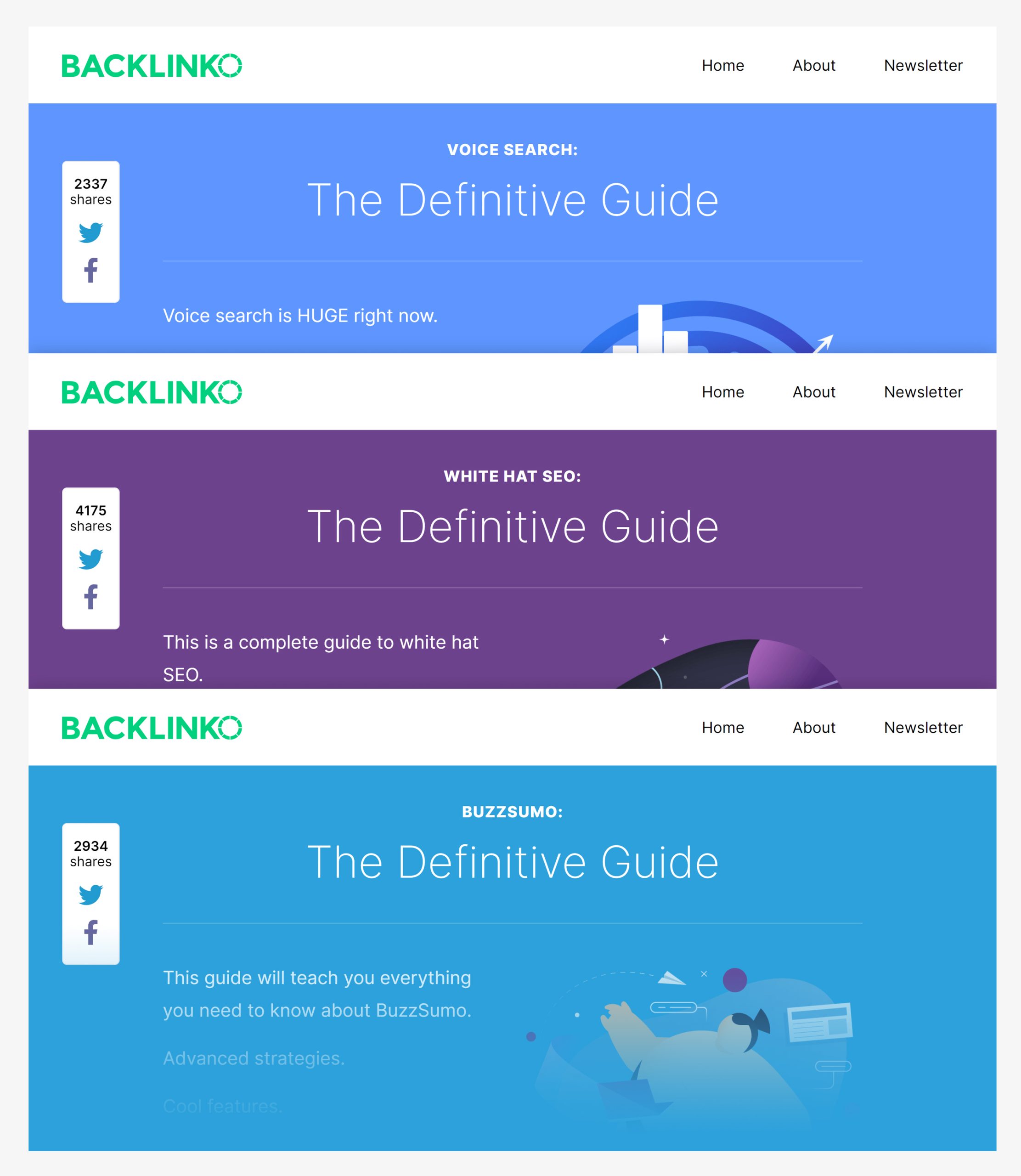Content strategy plays a pivotal role in the success of any organization's content marketing efforts.
It involves the systematic planning, creation, distribution, and management of content to attract and engage a specific target audience.
A well-defined content strategy ensures that the right content is delivered to the right audience, through the right channels, and at the right time.
It encompasses various aspects such as topic selection, content formats, writing style, design, and promotion.
By developing a comprehensive content strategy, businesses can align their content marketing activities with their overall goals, maximize their reach and impact, and ultimately drive meaningful results.
Here is what you will learn in this article:
A content strategy is a comprehensive plan that guides an organization's approach to creating, distributing, and managing content.
It involves defining goals, identifying target audiences, determining content formats and channels, and outlining the overall strategy to achieve desired outcomes.

A content strategy is crucial for several reasons:
Developing a content strategy is a crucial step in ensuring the success of your content marketing efforts.
It involves careful planning and consideration of various factors to create a well-rounded and effective approach. Here are the key steps to develop a content strategy:

Start by identifying topics that are relevant and interesting to your target audience.
Conduct market research, analyze competitors' content, and explore online communities to understand what topics resonate with your audience.
This will help you create content that addresses their needs and provides value.
Examine your competitors' blogs to discover popular topics that generate engagement and social shares.
Look for posts that receive high engagement and social shares, as these indicate the interests of your target audience. Use this information to generate ideas for your own content creation.
This can provide valuable insights into the content your target audience finds compelling.
Engage with online communities, such as forums and social media groups, where your target audience participates.
Pay attention to the questions, discussions, and challenges raised by community members.
Take note of the discussions and topics that generate the most interaction. This can help you identify content topics that address their needs and interests.
Analyze the performance of your existing content to determine what works best for your audience.
Identify the formats, topics, and styles that have generated the most traffic, engagement, and conversions.
Use this information to inform your future content strategy.

Select the appropriate content structure and format based on your goals, target audience, and available resources.
Consider options such as blog posts, videos, podcasts, infographics, ebooks, and more.
Tailor the format to maximize audience engagement and convey your message effectively.
To excel in content marketing, it's essential to prioritize the creation of amazing content that captivates and engages your audience.
Great content stands out amidst the sea of information available online and has the power to leave a lasting impression on your target audience.
By focusing on creating exceptional content, you can establish your brand as a reliable source of valuable information, build trust with your audience, and foster long-term relationships.
Amazing content goes beyond mere promotion or self-serving messages; it aims to educate, entertain, inspire, or solve a problem for your audience.
It should be well-researched, well-written, and visually appealing, while also delivering unique perspectives, insights, or solutions.
By consistently striving for greatness in your content, you can differentiate yourself from competitors, attract a loyal following, and generate significant engagement, ultimately driving your content marketing success.
Remember, quality content is the cornerstone of an effective content strategy.
Professional design plays a crucial role in the success of your content strategy.
When it comes to creating engaging and visually appealing content, the way it is presented can make a significant difference.
A professional design not only enhances the aesthetic appeal but also improves the overall user experience.
By utilizing high-resolution images, visually appealing graphics, and well-designed layouts, you can capture the attention of your audience and make a lasting impression.
Clear typography, appropriate color schemes, and consistent branding elements also contribute to a professional and cohesive look.
Remember that your content represents your brand, and investing in professional design helps establish credibility, trust, and a positive perception among your audience.
Real-life examples are a powerful tool in content marketing. Including real-life examples in your content helps to illustrate concepts, provide practical insights, and make your content more relatable to your audience.
By sharing stories, case studies, or testimonials, you can demonstrate how your product or service has made a positive impact on real people or businesses.
Real-life examples add credibility and authenticity to your content, as they show that your strategies, techniques, or solutions have been tested and proven successful in real-world scenarios.
Whether it's showcasing a customer success story, highlighting a before-and-after transformation, or featuring a case study, real-life examples help to build trust and inspire your audience by showing them tangible results.
By incorporating real-life examples into your content, you can engage your readers, make complex concepts more understandable, and provide actionable insights that resonate with your audience's own experiences.
Content that is written by an expert holds significant value in the realm of content marketing. When content is authored by someone with deep knowledge, experience, and expertise in a particular subject matter, it carries a sense of authority and credibility.
Expert-written content provides readers with valuable insights, expert opinions, and industry-specific knowledge that can't be easily replicated.
It goes beyond surface-level information and delves into the nuances and intricacies of the topic at hand.
By featuring content written by experts, you demonstrate your commitment to delivering high-quality and reliable information to your audience.
Expert-authored content not only educates and informs but also builds trust and establishes you as a reputable source within your industry.
When readers encounter content written by an expert, they are more likely to engage with it, share it with others, and view your brand as a go-to resource for authoritative information.
Optimize the user experience of your content. Format your text for readability by using proper headings, bullet points, and paragraphs.
If you incorporate multimedia elements such as videos or podcasts, ensure they are of high quality and provide a seamless viewing or listening experience.
Prioritize the ease of consumption to keep your audience engaged.

Implement basic on-page SEO practices to improve your content's visibility in search engine results.
This includes using relevant keywords in your titles, headings, and formatting your content for readability throughout your content.
Optimize your meta tags, URLs, and internal/external linking structure to improve search engine visibility and attract organic traffic.

Develop a comprehensive content promotion strategy to increase visibility and reach.
Utilize various channels such as social media, email newsletters, content roundups, and paid promotion.
Leverage the power of influencers and collaborations to amplify your content's reach.

Build an email newsletter list and regularly share valuable content with your subscribers.
Tailor the content to their interests and provide exclusive insights, offers, or updates.
Use email newsletters to nurture your audience, drive traffic to your content, and build a loyal community.
Collaborate with other content creators or industry influencers to create content roundups.
These curated collections of valuable resources or articles can help you reach a wider audience and increase exposure for your own content.
Consider investing in paid content promotion to amplify the reach of your most valuable and strategic content.
Utilize platforms like social media advertising, native advertising, or sponsored content to target specific audiences and generate increased visibility.

Tracking and measuring the performance of your content is crucial for evaluating the effectiveness of your content strategy.
By implementing tracking mechanisms and utilizing analytics tools, you can gather valuable data and insights to assess the performance of your content.
Tracking metrics such as traffic, backlinks, Google rankings, social shares, and conversions allows you to understand how your content is resonating with your audience, how it is driving engagement and visibility, and how it is contributing to your business goals.
By regularly monitoring and analyzing these performance metrics, you can identify areas of success, areas that require improvement, and make data-driven decisions to optimize your content strategy for better results.
Tracking the traffic your content generates is a key metric to measure its reach and audience engagement.
By analyzing website traffic data, you can identify the volume of visitors, the sources driving traffic, and the pages that attract the most visitors.
This information helps you understand the effectiveness of your content in driving website visits, identifying popular topics, and optimizing your content promotion strategies to increase traffic.
Backlinks are a crucial indicator of the authority and credibility of your content.
Tracking the number and quality of backlinks your content receives helps you assess its impact on other websites and how it contributes to your overall SEO strategy.
By monitoring backlinks, you can identify opportunities for link building, understand the effectiveness of your content in attracting organic links, and adjust your content creation and promotion efforts to generate more high-quality backlinks.
Monitoring your content's rankings on search engine result pages (SERPs) is essential to evaluate its visibility and search engine optimization (SEO) performance.
Tracking the positions of your target keywords and assessing changes in rankings over time helps you understand the impact of your content on organic search visibility.
By monitoring Google rankings, you can identify opportunities for optimization, refine your keyword targeting, and improve your content's visibility to attract more organic traffic.
Social shares are a valuable metric for measuring the virality and social engagement of your content.
Tracking the number of shares, likes, comments, and other social interactions provides insights into how well your content resonates with your audience on social media platforms.
By analyzing social shares, you can identify the types of content that generate high engagement, understand the preferences of your social media audience, and optimize your content strategy to encourage more social sharing and increase brand visibility.
Measuring conversions allows you to evaluate the effectiveness of your content in driving desired actions from your audience.
Whether it's newsletter sign-ups, form submissions, product purchases, or any other desired outcome, tracking conversions helps you understand the impact of your content on driving user behavior and achieving your business goals.
By setting up conversion tracking and analyzing conversion rates, you can identify the content that generates the highest conversion rates, optimize your content to improve conversions and align your content strategy with your overall marketing objectives.
A well-defined content strategy is essential for successful content marketing.
It provides a roadmap for creating, distributing, and managing content that resonates with your target audience, drives engagement, and achieves your business goals.
By understanding the importance of a content strategy and following best practices, you can develop a compelling and effective content strategy that delivers measurable results for your organization.